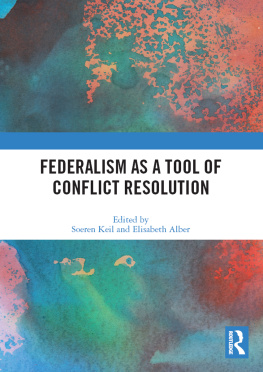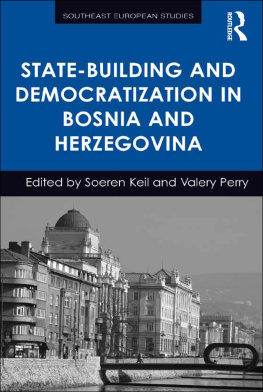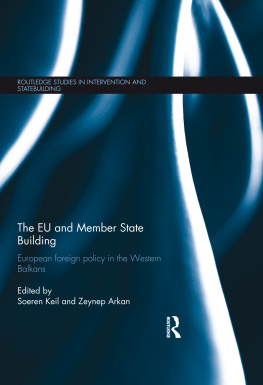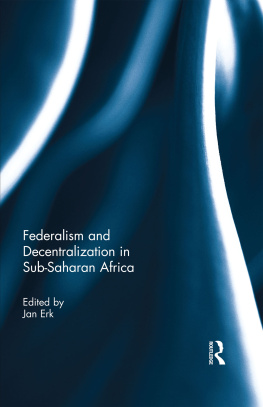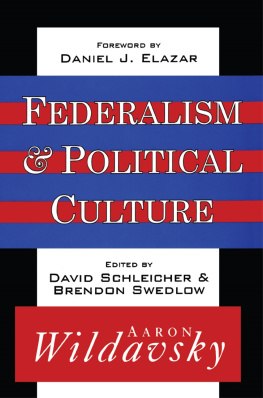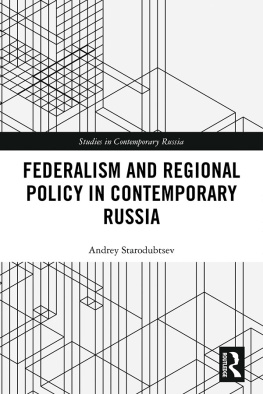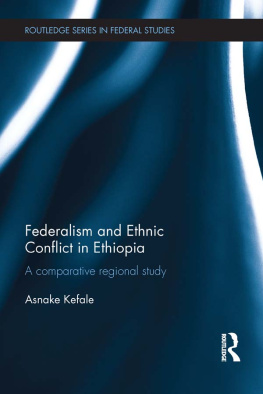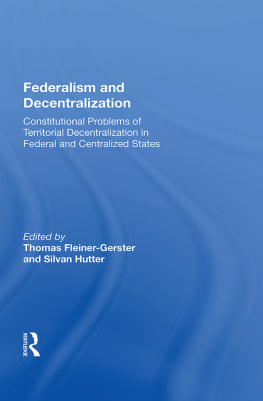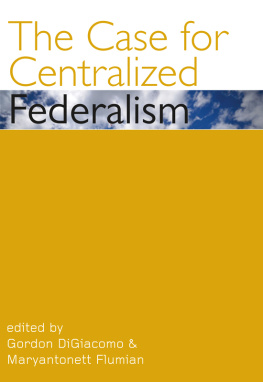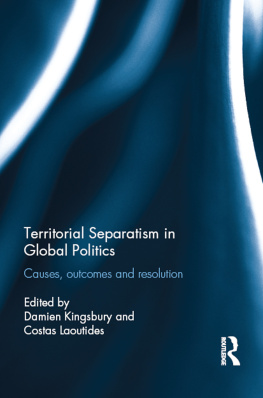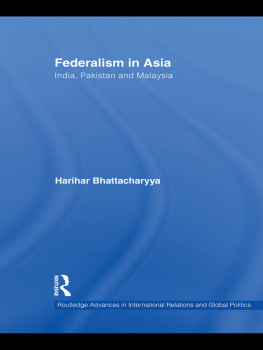Federalism as a Tool of Conflict Resolution
Looking at the growing use of federalism and decentralization as tools of conflict resolution, this book provides evidence from several case studies on the opportunities and challenges that territorial solutions offer when addressing internal conflicts within a variety of countries.
Federalism has been used as a tool of conflict resolution in a number of conflict situations around the world. The results of this have been mixed at best, with some countries moving slowly to the paths of peace and recovery, while others have returned to violence. This volume looks at a number of case studies in which federalism and decentralization have been promoted in order to bring opposing groups together and protect the territorial integrity of different countries. Yet, it is demonstrated that this has been incredibly difficult, and often overshadowed by wider concerns on secession, de- and re-centralization and geopolitics and geoeconomics. While federalism and decentralization might hold the key to keeping war-torn countries together and bringing hostile groups to the negotiation table, we nevertheless need to rethink under which conditions territorial autonomy can help to transform conflict and when it might contribute to an increase in conflict and violence. Federalism alone, so the key message from all contributions, cannot be enough to bring peace yet, without territorial solutions to ongoing violence, it is also unlikely that peace will be achieved.
The chapters in this book were originally published as a special issue of Ethnopolitics.
Soeren Keil is Reader and Subject Lead in Politics and International Relations at Canterbury Christ Church University, UK.
Elisabeth Alber is Senior Researcher and Program Head (Eurac Research Federal Scholar in Residence) at the Institute for Comparative Federalism at Eurac Research, Bolzano/Bozen, Italy.
Federalism as a Tool of Conflict Resolution
Edited by
Soeren Keil and Elisabeth Alber
First published 2021
by Routledge
2 Park Square, Milton Park, Abingdon, Oxon, OX14 4RN
and by Routledge
52 Vanderbilt Avenue, New York, NY 10017
Routledge is an imprint of the Taylor & Francis Group, an informa business
2021 The Editor of Ethnopolitics
2020 Joseph Marko. Originally published as Open Access.
With the exception of , please see the chapters Open Access footnote.
Trademark notice: Product or corporate names may be trademarks or registered trademarks, and are used only for identification and explanation without intent to infringe.
British Library Cataloguing-in-Publication Data
A catalogue record for this book is available from the British Library
ISBN13: 978-0-367-69296-4
Typeset in Times New Roman
by codeMantra
Publishers Note
The publisher accepts responsibility for any inconsistencies that may have arisen during the conversion of this book from journal articles to book chapters, namely the inclusion of journal terminology.
Disclaimer
Every effort has been made to contact copyright holders for their permission to reprint material in this book. The publishers would be grateful to hear from any copyright holder who is not here acknowledged and will undertake to rectify any errors or omissions in future editions of this book.
Contents
Soeren Keil and Elisabeth Alber
Paul Anderson
Johann Wolfschwenger and Kirsten Saxinger
Francesco Palermo
Eva Maria Belser
Karl Kssler
Joseph Marko
The chapters in this book were originally published in the Ethnopolitics, volume 19, issue 4 (September 2020). When citing this material, please use the original page numbering for each article, as follows:
Introduction
Federalism as a Tool of Conflict Resolution
Soeren Keil and Elisabeth Alber
Ethnopolitics, volume 19, issue 4 (September 2020) pp. 329341
Chapter 1
Decentralisation at a Crossroads: Spain, Catalonia and the Territorial Crisis
Paul Anderson
Ethnopolitics, volume 19, issue 4 (September 2020) pp. 342355
Chapter 2
Federalism, National Identity and Overcoming Frozen Conflicts: Moldovas Experience
Johann Wolfschwenger and Kirsten Saxinger
Ethnopolitics, volume 19, issue 4 (September 2020) pp. 356368
Chapter 3
The Elephant in the Room: Ukraine between Decentralization and Conflict
Francesco Palermo
Ethnopolitics, volume 19, issue 4 (September 2020) pp. 369382
Chapter 4
A Failure of State Transformation Rather than a Failure of Federalism? The Case of Iraq Eva Maria Belser
Ethnopolitics, volume 19, issue 4 (September 2020) pp. 383401
Chapter 5
Bougainville Moving Towards Independence? The Role of Autonomy for Conflict Resolution in Past and Present
Karl Kssler
Ethnopolitics, volume 19, issue 4 (September 2020) pp. 402415
Chapter 6
What is Wrong with the Concept of Multinational Federalism? Some Thoughts About the Interrelationship Between the Concepts of (Multi-)nationalism, Federalism, Power Sharing and Conflict Resolution
Joseph Marko
Ethnopolitics, volume 19, issue 4 (September 2020) pp. 416432
For any permission-related enquiries please visit:
http://www.tandfonline.com/page/help/permissions
Elisabeth Alber Institute for Comparative Federalism, Eurac Research, Bolzano/Bozen, Italy.
Paul Anderson Canterbury Christ Church University, UK.
Eva Maria Belser University of Fribourg, Switzerland.
Soeren Keil School of Law, Policing and Social Sciences, Canterbury Christ Church University, UK.
Karl Kssler Institute for Comparative Federalism, Eurac Research, Bolzano/Bozen, Italy.
Joseph Marko Institute of Public Law and Political Sciences, University of Graz, Austria. European Academy of Bolzano/Bozen, Italy.
Francesco Palermo Institute for Comparative Federalism, Eurac Research, Bolzano/Bozen, Italy.
Kirsten Saxinger Independent Researcher, Austria.
Johann Wolfschwenger Universit de Genve, Switzerland. Universit Libre de Bruxelles, Belgium.
SOEREN KEIL & ELISABETH ALBER
ABSTRACT There is a growing literature on the use of federalism as a tool of conflict resolution. Yet, while this literature focuses mainly on single case studies, there remains a gap in our comparative understanding of the workings of federalism as a tool to end violent conflicts, as well as the conditions under which it may succeed in bringing peace to war-torn countries. By discussing core themes that emerge when looking at single case studies and relevant theories on the use of federalism as a tool of conflict resolution, we highlight the importance of three main issues in our understanding of the workings of federalism as a tool of conflict resolution: (1) The role of centralization, decentralization and recentralization in the management of diversity and to accommodate the demands of different groups; (2) Contestation of the state, identity, the idea of federalism and other key issues in societies, in which ownership over the state is contested and fought over; and (3) Third-party intervention, geopolitics, and geoeconomics in the management of diversity. By bringing together existing debates on the topic of federalism and conflict resolution, and positioning the papers in this special issue within these debates, some of the complexities but also promises of the use of federalism as a tool of conflict resolution will be highlighted.

